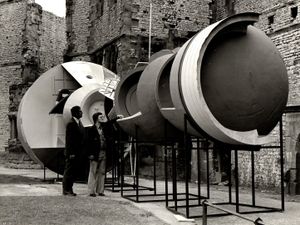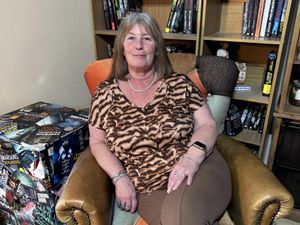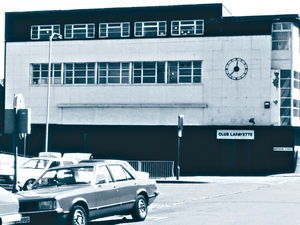Echoing the words of a workforce
When the gates of the MG Rover factory at Longbridge closed in April 2005, it was huge blow to the thousands of workers and the whole community.

More than 6,000 employees lost their jobs and among them was the father of poet Katy Wareham Morris who had spent 36 years working at the plant.
Derek Wareham, was just 15 when he joined Rover as an apprentice and worked his way up to a well-respected and significant role in the factory.
“The closure of the Longbridge factory was a devastating event for mine and countless other local families and redundancy is sadly a reality that people across the West Midlands and beyond are confronting at the moment,” Katy who lives in Pedmore, Stourbridge.
Two years ago she set out to memorialise its rich and colourful history as well as pay tribute to both her father and generations of other factory workers by producing a collection of poems.
As well as drawing on his personal idiolect, passion and anecdotes, Katy has integrated Longbridge’s regeneration documentation into her pamphlet, titled Making Tracks, which was recently produced by independent publisher V. Press
“It is an experimental hybrid of my dad’s car factory memoirs, found elements and my own thoughts and feelings on childhood, family and duty,” says 36-year-old Katy.
She began the process by interviewing her 66-year-old dad about his memories of his time working at the factory and created a verbatim record.
“I lifted my dad’s words into the poetry. Some of the poems are written in his own voice. Some are a collaboration of his words and my words.
“I also did some research on the car factory and the regeneration of the car factory site and I’ve used that in the rest of the poetry.
“It started out as me trying to create a tribute to my dad – I absolutely idolise my father. It’s because of him that I write poetry.
“When I was seven he gave me my first collection of poetry, Wordsworth’s Collected Poems. Since then I’ve been hooked.
“Dad wanted to become a writer but it wasn’t the done thing at the time.
“He was from a generation where you didn’t turn down a good, stable job to become a writer so he never pursued that dream.
“By writing poems about his memories of the factory and by using his own voice, he’s living his dream vicariously through me,” Katy tells Weekend.
Through her pamphlet, she is hoping to breakdown stereotypes relating to both poetry and working-class experience.
“I think the world of poetry can be quite snooty and there is a belief that only certain topics, themes or experiences are worth recording in poetry.
“But working class experience is culture and it deserves to be written about. It wasn’t just my dad that worked at the factory – 6,000 people also lost their jobs.
“It had a huge inpact on the community and the families who lives there so it’s a huge part of the area’s social history too,” says Katy.
In poems such as Identity, she has adopted a diagrammatic format to visually reflect the form and structure of the manufacturing schedule so familiar to the workforce.
Internal Vacancy, Sod’s Law and I Wandered Lonely illustrate the strong bonds and pride created through camaraderie, the sense of pressure and duty to keep the track running day and night as well as being the family breadwinner.
While Empty Shells relates the sense of abandonment felt when car shells were left mid-flight on the production line on the factory’s final day.
“The central poem to the collection is Metamorphosis. This poem thinks about how my dad grew and developed as a man through working at the factory and developed his sense of identity and also thinks about how the man he became influenced my growth, development and identity,” explains Katy.
Making Tracks has received high praise from other writers including former Birmingham Poet Laureate Giovanni Esposito, better known as Spoz and himself a young apprentice at the Longbridge factory, as well as poet and visual artist Helen Ivory, who said: “Wareham Morris’s father is the beating heart at the centre of these poems, it’s whose voice we hear, entrusted to her tender keeping. There is the melancholy of a way of life gone here, but also the love of a day’s work and the satisfaction of a job well done.”
Katy is delighted with the response to Making Tracks and says it reinforces her belief that working class experiences are valid and should be shared and heard through poetry.
“Dad was surprised that anybody would be interested in hearing about his life and what he had to say. He’s obviously very proud and honoured.
“There’s been such positive feedback to it and it shows that people are interested in what went on at the car factory,” she says.
“Making Tracks is a reminder that the Rover factory’s heritage has been all but erased by the regeneration of the area, and that’s why I hope this collection of poems memorialises the Longbridge legacy for future generations to experience,” adds Katy.
n Anyone wanting to order Katy’s Making Tracks pamphlet should visit The V. Press website vpresspoetry.blogspot.com/p/from-very-first-page-of-this-pamphlet.html





